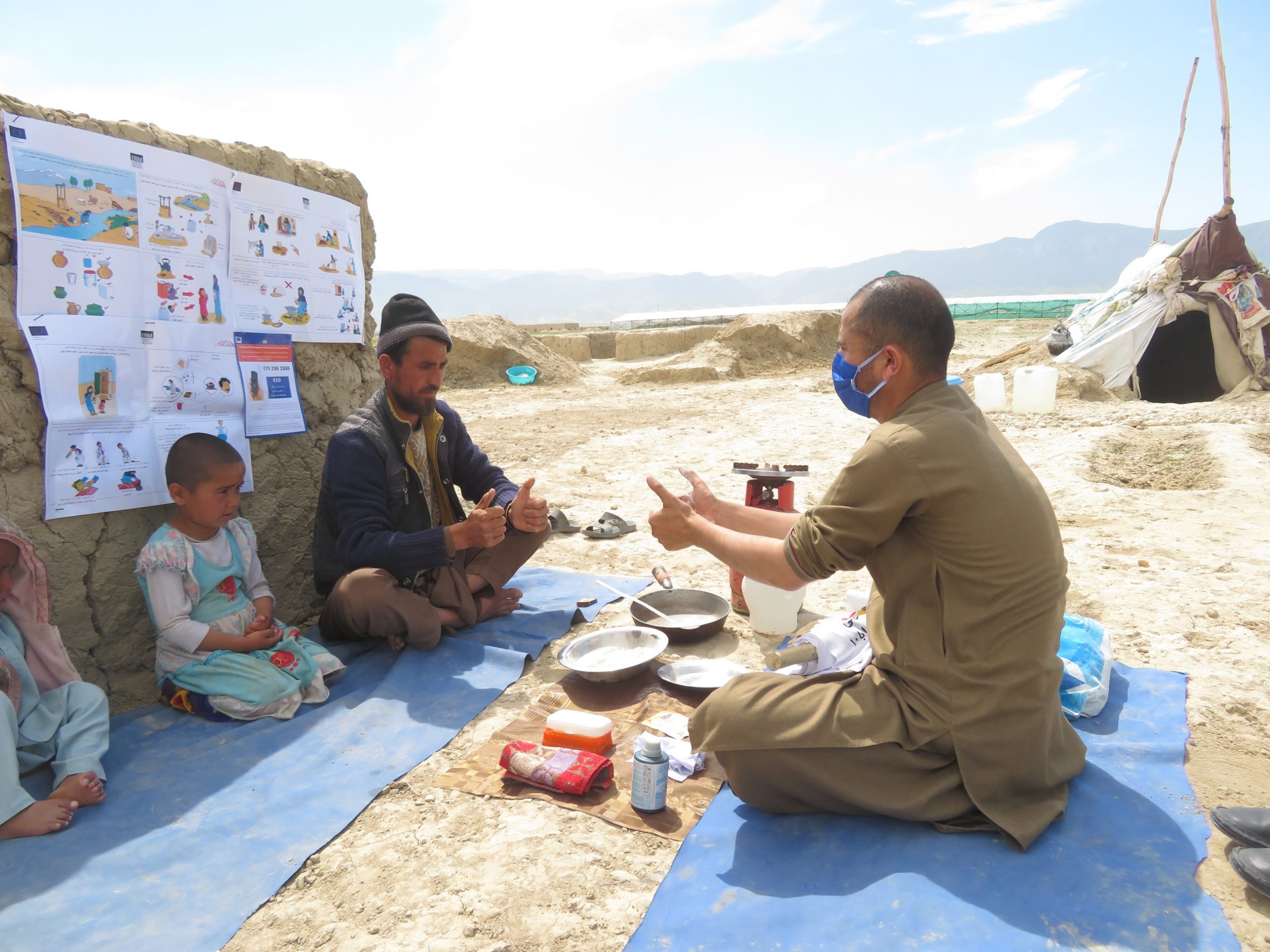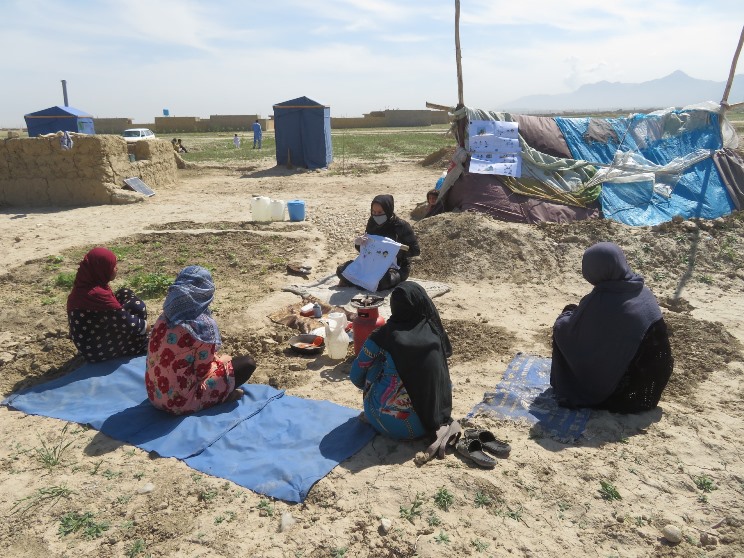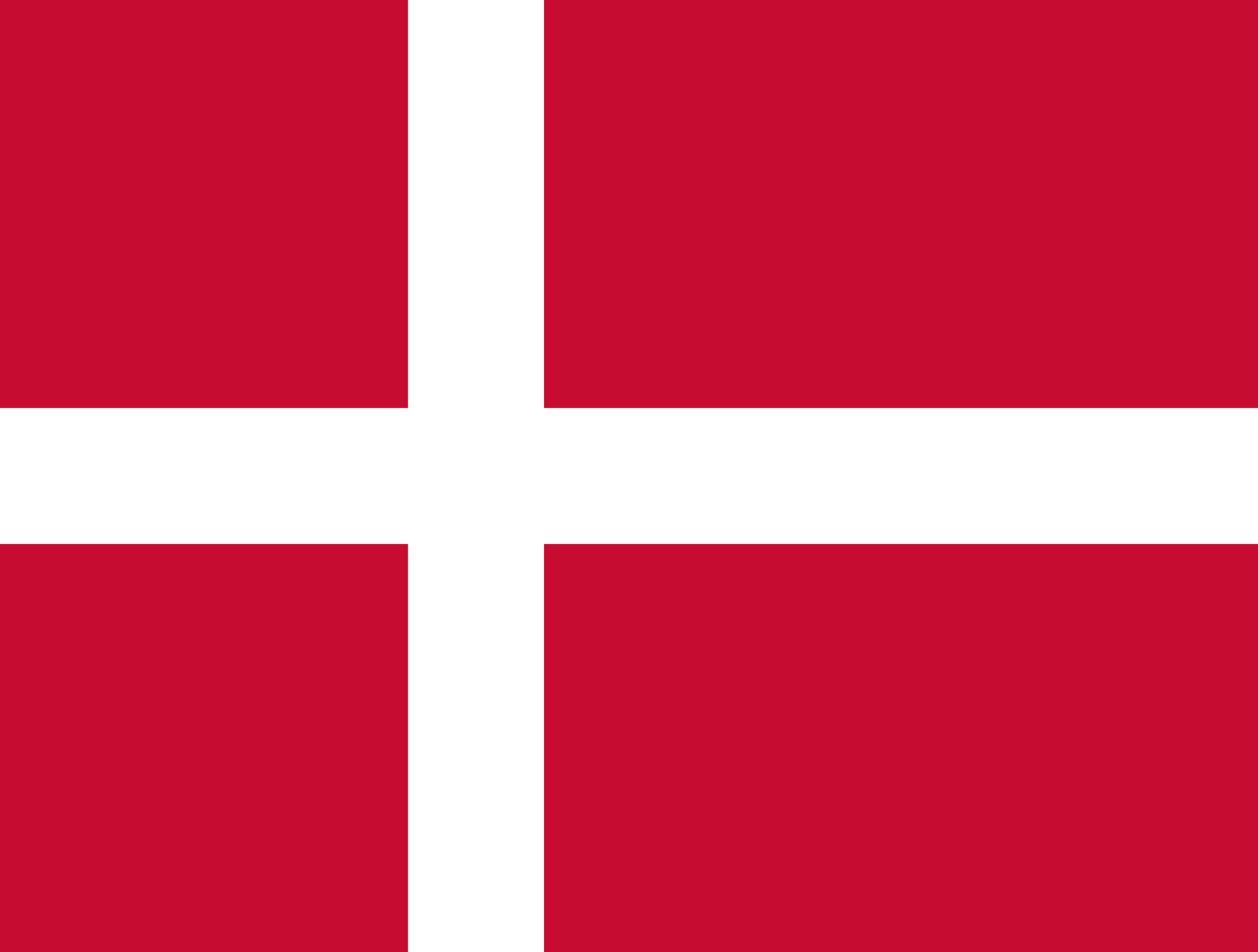DACAAR Gears up its Response to COVID 19

A family fleeing violence or hunger does not usually think of bringing soap and water along, to wash their hands. They just run for their lives. As the worldwide COVID-19 pandemic response teaches people the value of water and soap, thousands of Afghans continue to get displaced due to conflicts and natural disasters every day. This displacement adds up to the already large displaced Afghan population creating masses of highly vulnerable people in immediate danger of contracting the disease due to their poor living conditions and economic situation.
According to the International Office of Migration (IOM) between January and April 2020, more than 242,997individuals returned from Iran and 1,833from Pakistan. They were either forced to leave, lost their jobs or are in fear of contracting the virus and thought they would be better off in Afghanistan, which was considered to be safe until they returned in masses from Iran, considered one of the epicenters of the novel coronavirus.
Additional 62,476 people have been displaced in Afghanistan due to conflict. They did not know what awaits them ahead, how many days, months, or even years, they will be displaced and stuck in their tents or temporary shelters when Afghanistan declared a lockdown policy, movement restrictions, and physical distancing. Some who actually did have day jobs lost their meager chance of feeding their families.
As a result of this pandemic, the pressure on humanitarian aid organizations has increased. In places where there is no media presence and people do not have access to social media, agencies are asked to teach vulnerable people the effects of the novel coronavirus, how it spreads and how to protect themselves by washing hands, keeping distance, and avoiding big crowds.

The WASH Cluster estimates that 400,000 people are in severe needs of WASH assistance. Even before COVID-19, the coverage of WASH services was already stretched and people in high-risk areas urgently needed emergency WASH services, including COVID-19-specific hygiene kits, handwashing stations and tailored information on hygiene practices to mitigate the spread.
DACAAR immediately started to include the new messages in its hygiene education and adapted its way of conducting outreach by holding classes outdoors, in small groups or house-by-house, with the appropriate physical distance and protective equipment.
DACAAR will continue to distribute standard family hygiene kits as part of ongoing projects funded by the various donor as the procurement and prepositioning of some 30,000 COVID-19 specific hygiene kits as part of a UNOCHA-AHF funded project is underway which include extra soap as well as additional jerry cans in order to limit the number of visits to water collection points.
As part of this nation-wide project which will start on 1st May 2020, DACAAR plans to also set up handwashing facilities at crowded and at-risk locations, scale-up messaging of handwashing at the community level, and disinfect at-risk public places, institutions, and other affected hot spots. Also based on the request made by Kunar public health director and under UNICEF funded project, DACAAR provided WASH facilities in five Coronavirus active centers in the province.
"We don't face any problems while teaching the beneficiaries. We are taking precautions and practice safe distancing", said DACAAR Hygiene Promoter Safia, who is providing hygiene sessions to beneficiaries in Herat, the first city that has seen coronavirus cases. "Our main problem is getting to our beneficiaries because of the movement restriction. We are not even allowed to cross the main streets, so we are taking detours to reach our beneficiaries", she added.
Further, as part of the Citizen Charter Afghanistan Program(CCAP) which is implemented in 9 districts of 3 provinces, DACAAR conducts now the training for beneficiaries outside in open areas."According to the guidance from the Ministry of Public Health, we gather a maximum of 10 people for training and keep a safe distance from each other. Therefore, we have to conduct three times more training than in the past when we had larger groups. We also include the required COVID-19 information as part of the training”, said Attaullah Noori DACAAR's CCAP Manager.
At the same time, DACAAR does not neglect its other crucial humanitarian and development activities which contribute to the well-being of the most vulnerable groups, especially in such difficult times.
Afghanistan health official announced the first confirmed Coronavirus case in March 2020 and by May 6, 2020, 3,392 confirmed cases were announced by the Ministry of Public Health, from which, 104 people had died and 458 people had recovered in 34 provinces of Afghanistan.
Contributions: Zohal Nasrat, Dagmar Ruehrig
 Danish
Danish